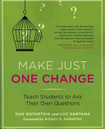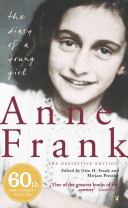Starting with questions students ask is the start of the journey of life long learning.
 We're eager to encourage students as well as teachers to ask better questions at Pender's Grove Primary. Recently released, Make just one change: Teach Students to ask their own questions, by Dan Rothstein and Luz Santana, offer the Question Formulation Technique (QFT) as a process to encourage students to ask their own questions and empower their own learning.
 Teachers and students have been getting to know what's going on with questioning at our school. We are in the process of looking at the data from our Year 3 to Year 6 Survey entitled 'Students' Questioning: What Do You Think?' and have been encouraged and surprised at what we are finding. There will be further updates in posts to come. Here is a little insight into the reflective honesty of one student who took the time to share their feelings about questioning in class. It is great that we are open enough to find new and supportive ways to encourage the participation of all. sometimes people in class don't give us a chance to ask questions and sometimes when you do ask a question and other people think it's really dumb and you shouldn't be really asking that question. They laugh or they pretend they are not laughing or they nod their head at you and you feel like you don't want to ask a question in class ever again. Also the teachers don't sense that you don't feel good about asking a question and sometimes they force us to ask that question and you really dont want to do it in front of the class because we're not that confident. Also I have seen other people telling other people from different classes that they said this dumb question. I dont feel that great asking questions in class. Not sure if I should thank Claire and Tara or not. I can't recall where or even how the discussion began but it has haunted me over these last few days. The conversation went something like this ... Claire and Tara cornered me in a quiet moment, amidst the frenzy of the school morning hustle and bustle. "Why are people hungry and starve in the world Jeff?" Tara asked. Wanting to get on with the planned learning for the day I tried to quickly appease her, "It's really complicated girls. There are many issues that make it difficult." But Claire persisted, "But why is it so difficult?" I lamely fumbled, grabbing at phrases, "International relationships, poverty, corruption." Then, realising I was sinking fast, I offered, "You're right. It shouldn't be hard at all!" I'm heading back to thank Claire and Tara for their persistence in asking important questions and to invite them and others who wish to join us to work out what we can do about hunger in our world.
Adults often use questions to explore what they want to know of others. Perhaps they come across as interrogators of personal worlds rather than prompters of imaginations! A chuckle arose in the Pender's Grove staffroom recently when teachers passed around a Jerry Scott and Jim Borgman comic entitled Zits.
For some sharp ideas about what makes a lame question check out the cartoons at http://zitscomics.com/comics/october-31-2012/. Do students really think this way about adult questions at home and at school?
|




 RSS Feed
RSS Feed